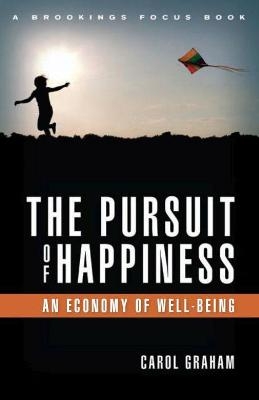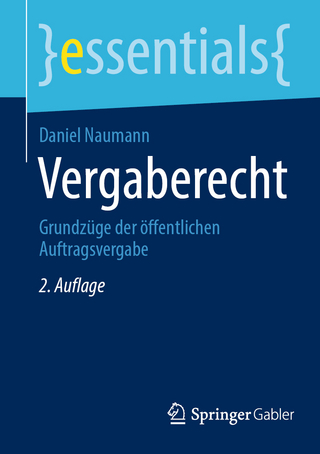
The Pursuit of Happiness
Toward An Economy of Well-Being
Seiten
2011
|
Teacher’s edition
Brookings Institution (Verlag)
978-0-8157-2127-7 (ISBN)
Brookings Institution (Verlag)
978-0-8157-2127-7 (ISBN)
- Titel ist leider vergriffen;
keine Neuauflage - Artikel merken
Economists are increasingly using happiness surveys to study a host of questions, ranging from the happiness effects of health and marriage to the unhappiness effects of unemployment, divorce, and even commuting time. Carol Graham was a pioneer in the economic study of happiness, and she has been involved from the beginning in discussions about applying this approach to economic policymaking.
In this straightforward and accessible book, Graham explores what we know about the determinants of happiness across and within countries of different development levels, including some counterintuitive and surprising relationships. She then raises the challenges posed by the use of these measures as comparative indicators. Foremost among these are the extent to which people can adapt to adversity and still report to be happy (the "happy peasant and frustrated achiever" problem) and the need for clarity on the definition of happiness. Centuries ago, the study of happiness was of great interest to economists and philosophers such as Adam Smith and Jeremy Bentham.
As the economics profession turned more toward quantitative methods, however, the approach fell out of fashion. Over a century later, economists are circling back, and research on happiness has entered the mainstream. There are a number of efforts underway to develop national level well-being measures. The objective is to develop metrics that can be compared within and across countries and ultimately used as complements to traditional income and GDP data. A definition of well-being that is broader than income could lead to improved understanding of poverty and the development process. But what are the components of such a metric, and should greater happiness become a specific policy goal? Should we be using happiness measures as a guide to development policies? These are the critical issues addressed in this book.
Contents 1. Happiness: A New Science?
2. What Do We Mean by "Happiness," and Why Does it Matter?
3. Happiness around the World: What We Know Now
4. Adaptation and Other Puzzles
5. Happiness Rather than GDP?
In The Pursuit of Happiness , the latest addition to the Brookings FOCUS series, Carol Graham explores what we know about the determinants of happiness, across and within countries at different stages of development. She then takes a look at just what we can do with that new knowledge and clearly presents both the promise and the potential pitfalls of injecting the "economics of happiness" into public policymaking. This burgeoning field, largely a product of collaboration between economists and psychologists, is gaining great currency worldwide. One of a handful of pioneers to study this topic a mere decade ago, Graham is understandably excited about how far the concept has come and its possible utility in the future.
The British, French, and Brazilian governments already have introduced happiness metrics into their benchmarks of national progress, and the U.S. government could follow suit. But "happiness" as a yardstick to help measure a nation's well-being is still a relatively new approach, and many questions remain unanswered. The Pursuit of Happiness spotlights the innovative contributions of happiness research to the dismal science. But it also raises a cautionary note about the issues that still need to be addressed before policymakers can make best use of them. An effective definition of well-being that goes beyond measuring income —the Gross National Product approach —could very well lead to improved understanding of poverty and economic welfare. But the question remains: how best to measure and quantify happiness?
While scholars have developed rigorous measures of well-being that can be included in our statistics —as the British are already doing —to what degree should we use such metrics to shape and evaluate policy, particularly in assessing development outcomes? Graham considers a number of unanswered questions, such as whether policy should be more concerned with increasing day-to-day contentment or with providing greater opportunity to build a fulfilling life.
Other issues include whether we care more about the happiness of today's citizens or that of future generations. Policies such as reducing our fiscal deficits or reforming our health care system, for example, typically require sacrificing current consumption and immediate well-being for better long-run outcomes. Another is whether policy should focus on reducing misery or raising general levels of well-being beyond their relatively high levels, in the same way that reducing poverty is only one choice among many objectives in our macroeconomic policy. Employing the new metrics without attention to these questions could produce mistakes that might undermine the long-term prospects for a truly meaningful economics of well-being. Despite this cautionary note, Graham points out that it is surely a positive development that some of our public attention is going to better understanding and enhancing the well-being of our citizens, rather than emphasizing the roots of their divide.
In this straightforward and accessible book, Graham explores what we know about the determinants of happiness across and within countries of different development levels, including some counterintuitive and surprising relationships. She then raises the challenges posed by the use of these measures as comparative indicators. Foremost among these are the extent to which people can adapt to adversity and still report to be happy (the "happy peasant and frustrated achiever" problem) and the need for clarity on the definition of happiness. Centuries ago, the study of happiness was of great interest to economists and philosophers such as Adam Smith and Jeremy Bentham.
As the economics profession turned more toward quantitative methods, however, the approach fell out of fashion. Over a century later, economists are circling back, and research on happiness has entered the mainstream. There are a number of efforts underway to develop national level well-being measures. The objective is to develop metrics that can be compared within and across countries and ultimately used as complements to traditional income and GDP data. A definition of well-being that is broader than income could lead to improved understanding of poverty and the development process. But what are the components of such a metric, and should greater happiness become a specific policy goal? Should we be using happiness measures as a guide to development policies? These are the critical issues addressed in this book.
Contents 1. Happiness: A New Science?
2. What Do We Mean by "Happiness," and Why Does it Matter?
3. Happiness around the World: What We Know Now
4. Adaptation and Other Puzzles
5. Happiness Rather than GDP?
In The Pursuit of Happiness , the latest addition to the Brookings FOCUS series, Carol Graham explores what we know about the determinants of happiness, across and within countries at different stages of development. She then takes a look at just what we can do with that new knowledge and clearly presents both the promise and the potential pitfalls of injecting the "economics of happiness" into public policymaking. This burgeoning field, largely a product of collaboration between economists and psychologists, is gaining great currency worldwide. One of a handful of pioneers to study this topic a mere decade ago, Graham is understandably excited about how far the concept has come and its possible utility in the future.
The British, French, and Brazilian governments already have introduced happiness metrics into their benchmarks of national progress, and the U.S. government could follow suit. But "happiness" as a yardstick to help measure a nation's well-being is still a relatively new approach, and many questions remain unanswered. The Pursuit of Happiness spotlights the innovative contributions of happiness research to the dismal science. But it also raises a cautionary note about the issues that still need to be addressed before policymakers can make best use of them. An effective definition of well-being that goes beyond measuring income —the Gross National Product approach —could very well lead to improved understanding of poverty and economic welfare. But the question remains: how best to measure and quantify happiness?
While scholars have developed rigorous measures of well-being that can be included in our statistics —as the British are already doing —to what degree should we use such metrics to shape and evaluate policy, particularly in assessing development outcomes? Graham considers a number of unanswered questions, such as whether policy should be more concerned with increasing day-to-day contentment or with providing greater opportunity to build a fulfilling life.
Other issues include whether we care more about the happiness of today's citizens or that of future generations. Policies such as reducing our fiscal deficits or reforming our health care system, for example, typically require sacrificing current consumption and immediate well-being for better long-run outcomes. Another is whether policy should focus on reducing misery or raising general levels of well-being beyond their relatively high levels, in the same way that reducing poverty is only one choice among many objectives in our macroeconomic policy. Employing the new metrics without attention to these questions could produce mistakes that might undermine the long-term prospects for a truly meaningful economics of well-being. Despite this cautionary note, Graham points out that it is surely a positive development that some of our public attention is going to better understanding and enhancing the well-being of our citizens, rather than emphasizing the roots of their divide.
Carol Graham is a senior fellow in Global Economy and Development and Charles Robinson Chair in Foreign Policy at the Brookings Institution, Washington, D.C., USA. She is also College Park Professor at the University of Maryland's School of Public Policy, USA. Her previous books include Happiness around the World: The Paradox of Happy Peasants and Miserable Millionaires (Oxford University Press) and Happiness and Hardship: Opportunity and Insecurity in New Market Economies (Brookings Institution Press, with Stefano Pettinato).
| Erscheint lt. Verlag | 1.7.2011 |
|---|---|
| Sprache | englisch |
| Maße | 146 x 223 mm |
| Gewicht | 367 g |
| Themenwelt | Geisteswissenschaften ► Philosophie |
| Sozialwissenschaften ► Politik / Verwaltung ► Staat / Verwaltung | |
| Wirtschaft ► Volkswirtschaftslehre ► Mikroökonomie | |
| ISBN-10 | 0-8157-2127-7 / 0815721277 |
| ISBN-13 | 978-0-8157-2127-7 / 9780815721277 |
| Zustand | Neuware |
| Haben Sie eine Frage zum Produkt? |
Mehr entdecken
aus dem Bereich
aus dem Bereich
Organisationen steuern, Strukturen schaffen, Prozesse gestalten
Buch | Softcover (2024)
Rehm Verlag
38,00 €
Grundzüge der öffentlichen Auftragsvergabe
Buch | Softcover (2022)
Springer Fachmedien Wiesbaden GmbH (Verlag)
14,99 €


